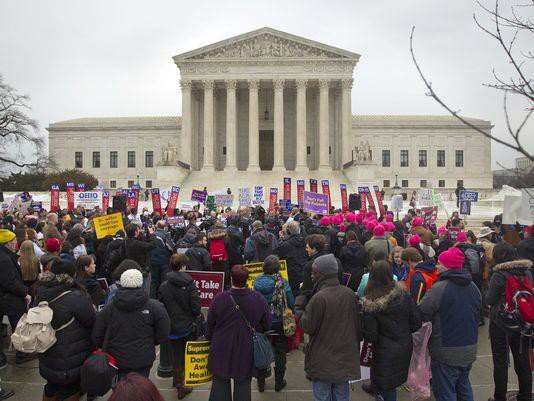Seminar from the Institute for Constitutional History: Democratic Constitutionalism
The Institute for Constitutional History is pleased to announce another seminar for advanced graduate students and junior faculty: Democratic Constitutionalism.
 INSTRUCTORS:
INSTRUCTORS:
Robert Post is Dean and Sol & Lillian Goldman Professor of Law at Yale Law School. He has written and edited numerous books, including Citizens Divided: A Constitutional Theory of Campaign Finance Reform (2014), originally delivered as the Tanner Lectures at Harvard in 2013; Democracy, Expertise, Academic Freedom: A First Amendment Jurisprudence for the Modern State (2012), originally delivered as the Rosenthal Lectures at Northwestern University; For the Common Good: Principles of American Academic Freedom (with Matthew M. Finkin, 2009); Prejudicial Appearances: The Logic of American Antidiscrimination Law (with K. Anthony Appiah, Judith Butler, Thomas C. Grey & Reva Siegel, 2001); and Constitutional Domains: Democracy, Community, Management (1995). Recent articles and chapters include “Theorizing Disagreement: Reconceiving the Relationship Between Law and Politics” (California Law Review, 2010); “Federalism, Positive Law, and the Emergence of the American Administrative State: Prohibition in the Taft Court Era” (William & Mary Law Review, 2006); “Foreword: Fashioning the Legal Constitution: Culture, Courts, and Law” (Harvard Law Review, 2003); “Debating Disciplinarity” (Critical Inquiry, 2009); and “Subsidized Speech” (Yale Law Journal, 1996).
Reva Siegel is the Nicholas deB. Katzenbach Professor of Law at Yale Law School. Professor Siegel’s writing draws on legal history to explore questions of law and inequality and to analyze how courts interact with representative government and popular movements in interpreting the Constitution. Her articles include “The Difference a Whole Woman Makes: Protection for the Abortion Right After Whole Woman’s Health,” 126 Yale L.J.F. 149 (2016) (with Linda Greenhouse); “Conscience Wars: Complicity-Based Conscience Claims in Religion and Politics,” 124 Yale L.J. (2015) (with Doug NeJaime); “The Supreme Court, 2012 Term — Foreword: Equality Divided,” 127 Harv. L. Rev. (2013); “Dead or Alive: Originalism as Popular Constitutionalism in Heller,” 122 Harv. L. Rev. 191 (2008); “Brennan Lecture: Constitutional Culture, Social Movement Conflict, and Constitutional Change: The Case of the de facto ERA,” 94 Cal.L.Rev. 1323 (2006); and “Equality Talk: Antisubordination and Anticlassification Values in Constitutional Struggles over Brown,” 117 Harv. L.Rev. 1470 (2004). Her books include Processes of Constitutional Decisionmaking (with Paul Brest, Sanford Levinson, Jack M. Balkin, and Akhil Reed Amar, 2014); Before Roe v. Wade: Voices That Shaped the Abortion Debate Before the Supreme Court’s Ruling (with Linda Greenhouse, 2012); and The Constitution in 2020 (edited with Jack M. Balkin, 2009).
PROGRAM CONTENT: The seminar will explore the relationship between judicial review and constitutional interpretation outside the courts. It will study how those in Congress and the Executive Branch, as well as citizens in political parties and social movements, make claims on the Constitution. Using case histories involving civil rights, gun rights, abortion, same-sex marriage, and religion, we will examine the roles that political mobilization and conflict play in the development of constitutional meaning inside and outside of courts.
LOGISTICS: The dates the seminar will meet are: January 13, January 27, February 17, and February 24; Fridays from 2-5 p.m. The seminar will be held at the New-York Historical Society, 170 Central Park West, New York City.
APPLICATION PROCESS: The seminar is designed for graduate students and junior faculty in history, political science, law, and related disciplines. All participants will be expected to complete the assigned readings and participate in seminar discussions. Although the Institute cannot offer academic credit directly for the seminar, students may be able to earn graduate credit through their home departments by completing an independent research project in conjunction with the seminar. Please consult with your advisor and/or director of graduate studies about these possibilities. Space is limited, so applicants should send a copy of their c.v. and a short statement on how this seminar will be useful to them in their research, teaching, or professional development. Materials will be accepted only by email at MMarcus@nyhistory.org until December 10, 2016 Successful applicants will be notified soon thereafter. For further information, please contact Maeva Marcus at (202) 994-6562 or send an email to MMarcus@nyhistory.org.
ADDITIONAL INFORMATION: There is no tuition or other charge for this seminar, though participants will be expected to acquire the assigned books on their own.
ABOUT ICH: The Institute for Constitutional History (ICH) is the nation’s premier institute dedicated to ensuring that future generations of Americans understand the substance and historical development of the U.S. Constitution. Located at the New York Historical Society and the George Washington University Law School, the Institute is co-sponsored by the American Historical Association, the Organization of American Historians, and the American Political Science Association. The Association of American Law Schools is a cooperating entity. ICH prepares junior scholars and college instructors to convey to their readers and students the important role the Constitution has played in shaping American society. ICH also provides a national forum for the preparation and dissemination of humanistic, interdisciplinary scholarship on American constitutional history.
Support for this seminar of the Graduate Institute for Constitutional History is provided in honor of Eric J. Wallach. The Graduate Institute for Constitutional History is supported, in part, by the Saunders Endowment for Constitutional History and a “We the People” challenge grant from the National Endowment for the Humanities.
This post first appeared on AHA Today.
Tags: AHA Activities AHA Today Legal History Political History
Comment
Please read our commenting and letters policy before submitting.






